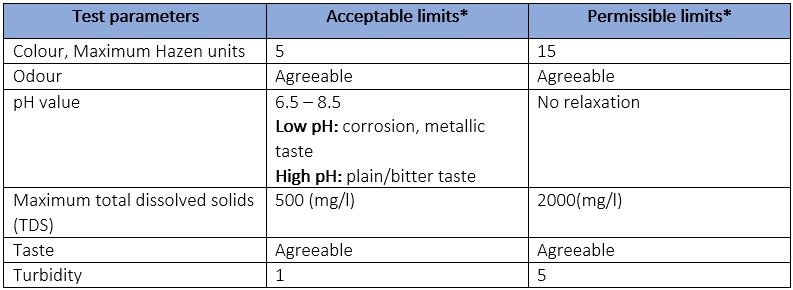Before buying a new home or a rental flat, your relatives or friends might suggest checking the locality for available amenities, finance options for the apartment and many other things. Very few might advise you to check the water quality but we think it is very important. Some property sellers and realtors mention 24 x 7 water supply as one of the highlighted amenities, which can be either supplied by municipalities or through ground (wells or borewells). Though municipalities treat water before supplying it to households, you should still purify it before consumption.
Water collects a lot of contaminants and heavy metals as it travels through storage tanks and metal pipes to your home. These contaminants may not be visible to the naked eye or smell or taste bad either. There are health problems associated with drinking unclean water and the only way to know if it is safe or not for drinking is by getting the water tested. It is always advisable to get the water tested from the nearest certified water laboratory. The process is time-consuming and can also be costly. What if we told you that there are portable water testing kits that let you test water quality at home?
Every country has drinking water standards defined and in India, the Bureau of Indian Standards (BIS) and the Ministry of Water Resources have it defined. This standard was originally published in 1983 and the revised water quality standard is IS 10500:2012 (second revision). These standards define desired limits of every element acceptable in drinking water. It is also helpful when you test the quality of drinking water. So, before you start testing the water quality, it is very important to check the acceptable limits* of all the elements in the drinking water. The permissible limits* can still be tolerated if there isn’t any other water source, but that shouldn’t ever exceed the indicated limit since these can be harmful for health.
Physical parameters

Note: The water quality standards are set by the Bureau of Indian Standards (BIS) and are subject to change. For the latest update, visit their official website.
General parameters

Note: There are few parameters concerning toxic elements present in the water, which may not be safe in drinking water. You can refer to the detailed document on the drinking water specifications.
Water testing kits are easy and convenient to use. They give you a realistic picture of how safe your drinking water truly is? They checks the presence of heavy metals, dissolved solids and other impurities in the water. For example, the bacteria test kits or a dip slide method can detect presence of bacteria in the water. Before you use them, it is always advisable to study the process well. There are corrosion monitoring kits too that can test multiple elements like alkalinity, temperature, calcium hardness and many other dissolved solids in the water. There are even comparison test kits, pH meters and pocket TDS meters to check if the water meets acceptable standards and is safe for drinking. While many of these water testing kits generate pretty accurate results, we still recommend getting the water tested at certified laboratories.
To collect the water sample at testing laboratories, you are provided a sterilized container. Ensure the lid is closed until you collect water. Let the tap water flow for a minute or two before collecting the sample in the container. Close the lid tightly and submit it to the laboratory within 48 hours of collecting it. While water pollution is a major concern, installing a water purifier with an advanced purifying technology has become a necessity. Based on the test results from the water laboratories or the water testing kits, you can also decide on a water purifier that uses a combination of RO, UV, carbon filters or any other universal purifying technologies.



